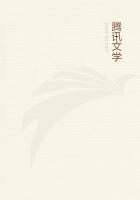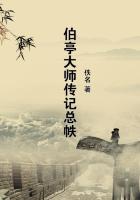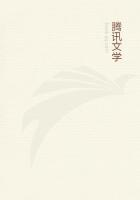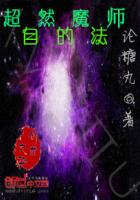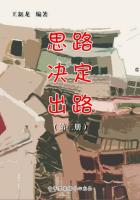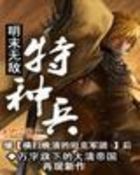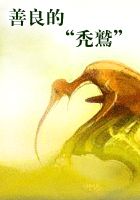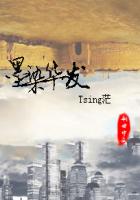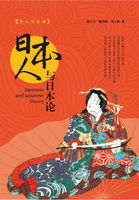(1) This title of great king, both in our Bibles, 2 Kings 18:19;Isaiah 36:4, and here in Josephus, is the very same that Herodotus gives this Sennacherib, as Spanheim takes notice on this place.
(2) What Josephus says here, how Isaiah the prophet assured Hezekiah that "at this time he should not be besieged by the king of Assyria; that for the future he might be secure of being not at all disturbed by him; and that [afterward] the people might go on peaceably, and without fear, with their husbandry and other affairs," is more distinct in our other copies, both of the Kings and of Isaiah, and deserves very great consideration.The words are these: "This shall be a sign unto thee, Ye shall eat this year such as groweth of itself, and the second year that which springeth of the same; and in the third year sow ye, and reap, and plant vineyards, and eat the fruit thereof," 2 Kings 19:29;Isaiah 37:30; which seem to me plainly to design a Sabbatic year, a year of jubilee next after it, and the succeeding usual labors and fruits of them on the third and following years.
(3) That this terrible calamity of the slaughter of the 185,000Assyrians is here delivered in the words of Berosus the Chaldean, and that it was certainly and frequently foretold by the Jewish prophets, and that it was certainly and undeniably accomplished, see Authent.Rec.part II.p.858.
(3) We are here to take notice, that these two sons of Sennacherib, that ran away into Armenia, became the heads of two famous families there, the Arzerunii and the Genunii; of which see the particular histories in Moses Chorenensis, p.60.
(4) Josephus, and all our copies, place the sickness of Hezekiah after the destruction of Sennacherib's army, because it appears to have been after his first assault, as he was going into Arabia and Egypt, where he pushed his conquests as far as they would go, and in order to despatch his story altogether; yet does no copy but this of Josephus say it was after that destruction, but only that it happened in those days, or about that time of Hezekiah's life.Nor will the fifteen years' prolongation of his life after his sickness, allow that sickness to have been later than the former part of the fifteenth year of his reign, since chronology does not allow him in all above twenty-nine years and a few months; whereas the first assault of Sennacherib was on the fourteenth year of Hezekiah, but the destruction of Sennacherib's army was not till his eighteenth year.
(5) As to this regress of the shadow, either upon a sun-dial, or the steps of the royal palace built by Ahaz, whether it were physically done by the real miraculous revolution of the earth in its diurnal motion backward from east to west for a while, and its return again to its old natural revolution from west to east;or whether it were not apparent only, and performed by an aerial phosphorus, which imitated the sun's motion backward, while a cloud hid the real sun; cannot now be determined.Philosophers and astronomers will naturally incline to the latter hypothesis.
However, it must be noted, that Josephus seems to have understood it otherwise than we generally do, that the shadow was accelerated as much at first forward as it was made to go backward afterward, and so the day was neither longer nor shorter than usual; which, it must be confessed agrees best of all to astronomy, whose eclipses, older than the time were observed at the same times of the day as if this miracle had never happened.
After all, this wonderful signal was not, it seems, peculiar to Judea, but either seen, or at least heard of, at Babylon also, as appears by 2 Chronicles 32:31, where we learn that the Babylonian ambassadors were sent to Hezekiah, among other things, to inquire of the wonder that was done in the land.
(6) This expression of Josephus, that the Medes, upon this destruction of the Assyrian army, "overthrew" the Assyrian empire, seems to be too strong; for although they immediately cast off the Assrian yoke, and set up Deioces, a king of their own, yet it was some time before the Medes and Babylonians overthrew Nineveh, and some generations ere the Medes and Persians under Cyaxares and Cyrus overthrew the Assyrian or Babylonian empire, and took Babylon.
(7) It is hard to reconcile the account in the Second Book of Kings (ch.23:11) with this account in Josephus, and to translate this passage truly in Josephus, whose copies are supposed to be here imperfect.However, the general sense of both seems to be this: That there were certain chariots, with their horses, dedicated to the idol of the sun, or to Moloch; which idol might be carried about in procession, and worshipped by the people;which chariots were now "taken away," as Josephus says, or, as the Book of Kings says, "burnt with fire, by Josiah."(8) This is a remarkable passage of chronology in Josephus, that about the latter end of the reign of Josiah, the Medes and Babylonians overthrew the empire of the Assyrians; or, in the words of Tobit's continuator, that "before Tobias died, he heard of the destruction of Nineveh, which was taken by Nebuchodonosor the Babylonian, and Assuerus the Mede," Tob.14:15.See Dean Prideaux's Connexion, at the year 612.
(9) This battle is justly esteemed the very same that Herodotus (B.II.sect.156) mentions, when he says, that "Necao joined battle with the Syrians [or Jews] at Magdolum, [Megiddo,] and beat them," as Dr.Hudson here observes.
(10) Whether Josephus, from 2 Chronicles 35:25, here means the book of the Lamentations of Jeremiah, still extant, which chiefly belongs to the destruction of Jerusalem under Nebuchadnezzar, or to any other like melancholy poem now lost, but extant in the days of Josephus, belonging peculiarly to Josiah, cannot now be determined.


